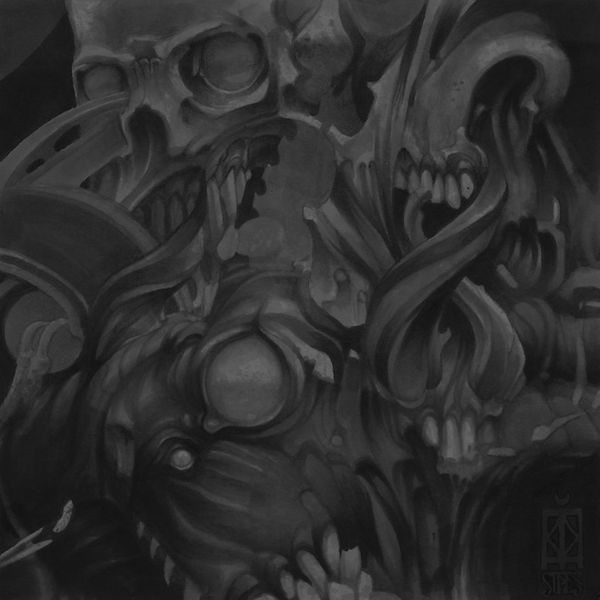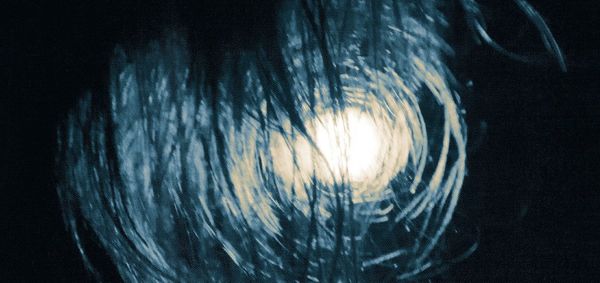Adoran: Children of Mars
Adoran is a Canadian drone duo featuring drummer Aidan Baker, from doomgaze luminaries Nadja, and bassist Dorian Williamson, who also plays in noted ambient metal two-piece Northumbria. Earlier this year, Northumbria released one of 2015’s best experimental rock releases with their stunning third full-length, Helluland. Inspired by the Norse discovery of Canada’s Baffin Island, the album captured a magnificent sense of awe and wonder, and a hefty amount of mist-shrouded mystery too. Which is something that Adoran’s sophomore album, Children of Mars, shares in abundance.
Children of Mars features two lengthy tracks, “Deimos” and “Phobos”, which are, of course, the names of Mars’ two moons. Obviously, thanks to scientific advancements, many of the previously inscrutable secrets of the skies above have been revealed over the years. But none of that takes anything away from the mythos and mystery that sits at the core of Children of Mars’ two extensive tracks. The album taps into that innermost fascination we have with the seemingly unfathomable purpose of the universe at large. It says, “Sure, science has explained many wonderous things to us. But that hasn’t stopped us looking to the skies and imagining.”
“Deimos” and “Phobos” capture that sense of fantastical dreaming perfectly on Children of Mars. The two moons of Mars were originally named after Greek mythological characters; Deimos aligned with dread, and Phobos with fear. I don’t know if Adoran intended to paint a disquieting picture to express dread and fear on *Children of Mars, *but the album certainly reflects those characteristics.
You’ll feel a lot of unease in Children of Mars’ shadowy depths. The opening track, “Deimos”, feels markedly ominous with its crawling bass, nebulous percussion, and creeping, low-frequency vibrations. Williamson’s bass is superbly eerie throughout, churning and rumbling with cosmic menace. And “Deimos” definitely communicates the deep, dark and transfixing magnitude of the heavens over 22 foreboding minutes.
Listening to “Deimos” reminds me of when the late Selim Lemouchi (founder of occult rockers The Devil’s Blood) said his band was interested in communicating a sense of what lurks in the black gulf between stars. “Deimos” certainly summons and then maintains a mysterious and creeping sensation over its lengthy running time. And Children of Mars’ second 20-minute-plus track, “Phobos”, follows a similarly portentous route.
Where “Deimos” tracks an ambient course for the bulk of its duration, “Phobos” sees Baker’s drumming become more forceful and upfront. It’s a heavier track, with Williamson stretching out his bass notes to infinity, building a thicker and sludgier wall of noise. “Phobos” feels like it’s drawing on that eternal ache for meaning in a boundless universe. But, like any response to expansive drone, that’s just one interpretation.
Searching for personal meaning is what drone’s all about. You have to be willing to play your part. Especially when sparse musical soundscapes come with few adornments or landmarks. It’s up to you to decipher the message being conveyed on Children of Mars, because Adoran sure aren’t dishing out any throwaway hooks to make things accessible here.
Still, crank up the volume, and *Children of Mars’ *two mammoth songs tear a rift in reality, opening up vast, firmamental vistas. It’s then up you to explore further. But that’s where the rewards lie. Because the album might well be sparse, but like all drone, it isn’t passive. It’s all about how much you’re willing to engage with it and immerse yourself in it.
I should also point out, that as much I as enjoyed the explorative heart of *Children of Mars, *the album isn’t for everyone. If you’re not a fan of massive and spacious drones already, then Children of Mars won’t convert you into a drone devotee. There’s nothing here that provides an easy introduction or handhold. But, as mentioned, for dedicated fans of maximal/minimal drones, *Children of Mars *makes for a mesmerising pilgrimage into the far reaches.
Children of Mars might be bare-boned, but it uses every ounce of its physicality to kick down those famed doors of consciousness. And there’s a mantric minimalism to the album that underscores the transcendent and journeying nature of the finest soul-stirring drones. Best of all, Children of Mars is aptly astronomical in its breadth. Fittingly celestial in its greater mysteries. And it’s a guaranteed trip through the void, and beyond.




